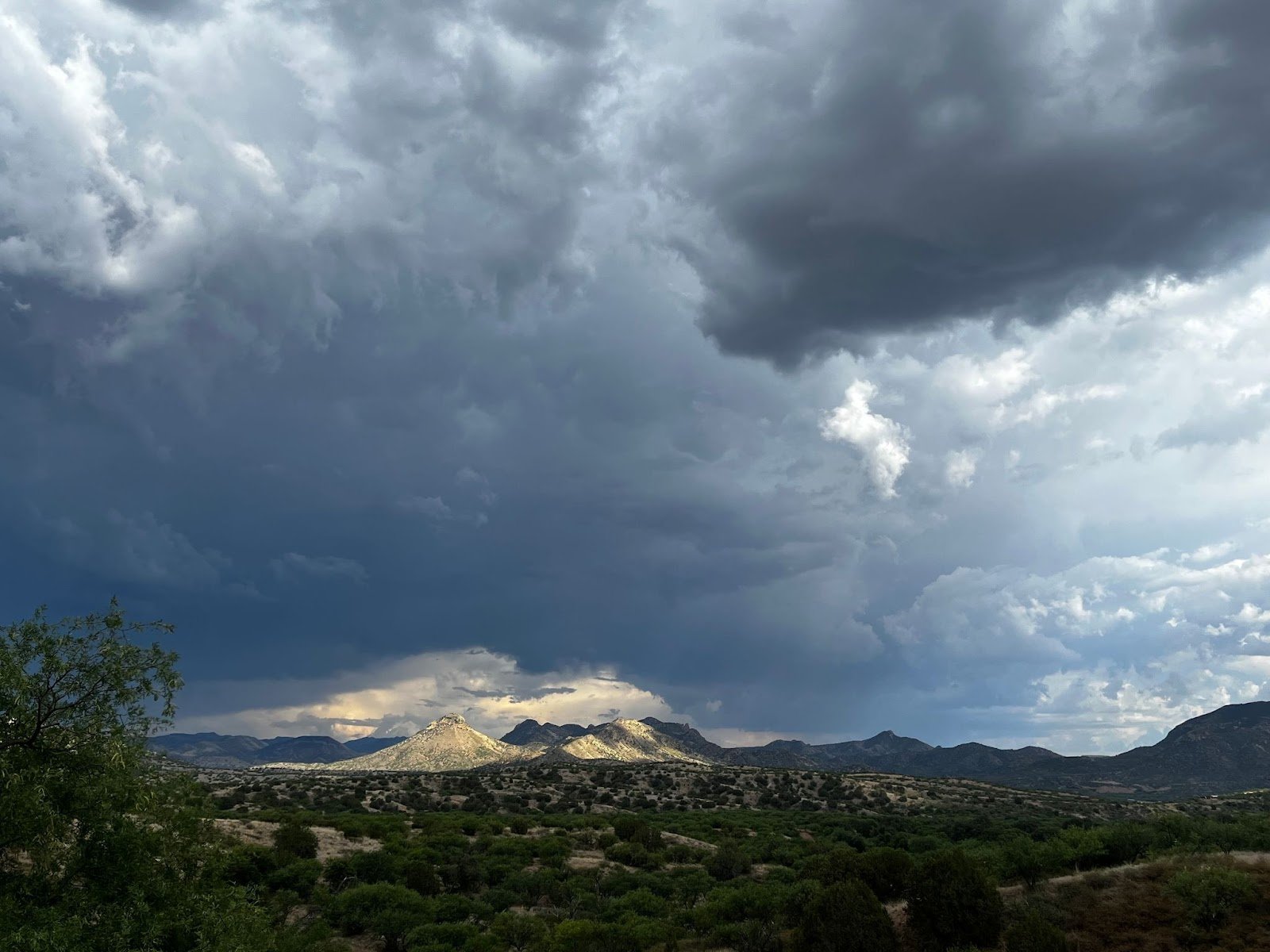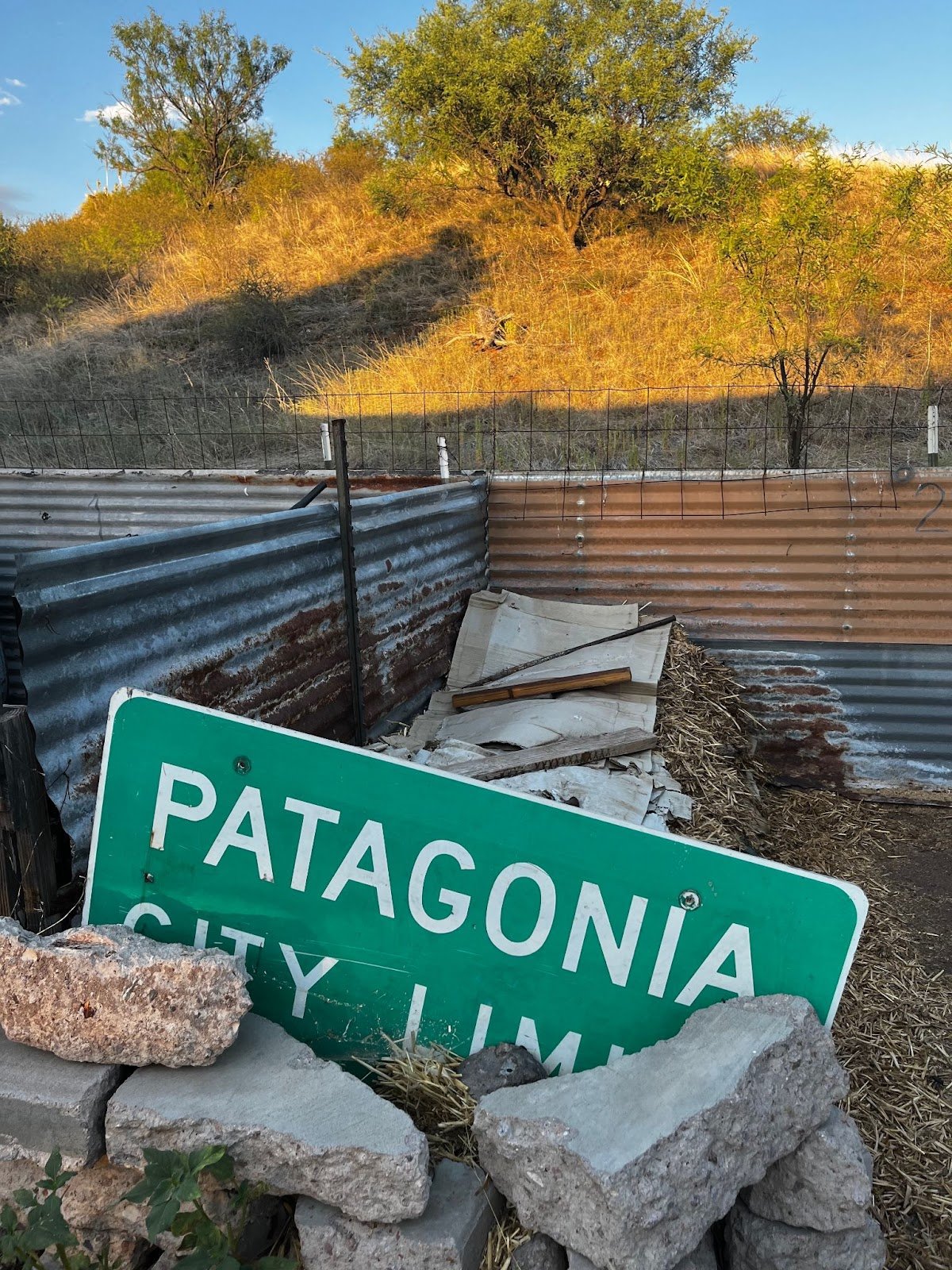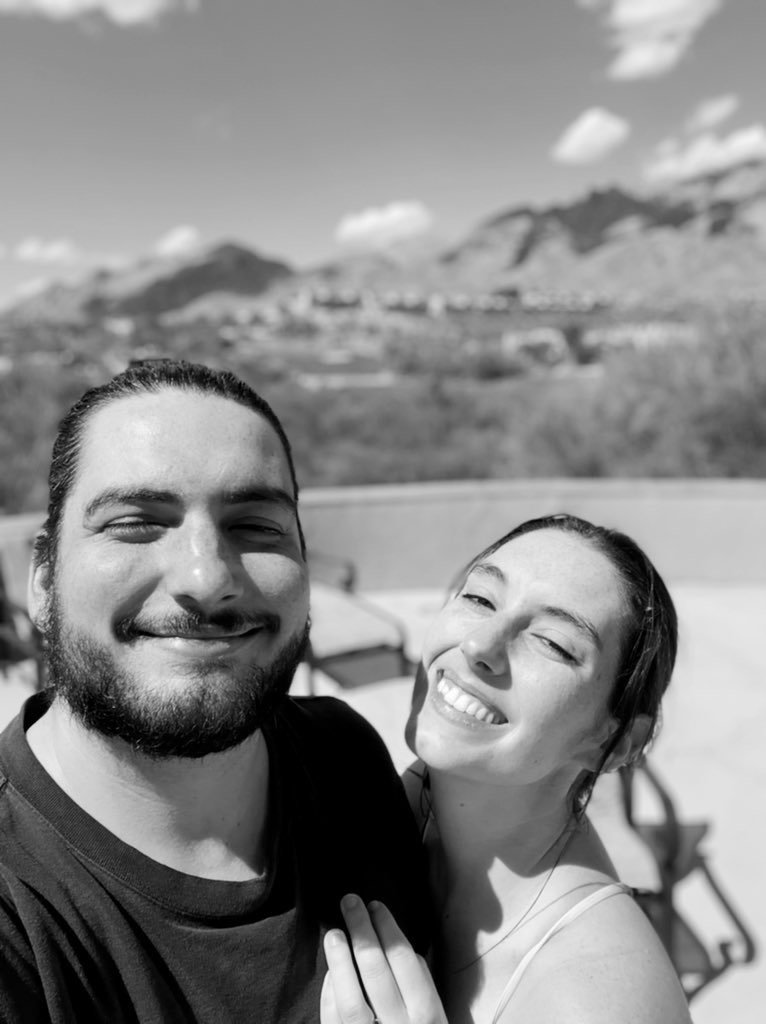The Sky Stays Purple. The Mountains Don’t Move.
by Jo Blair Cipriano
“I could stay here for such a long time
And not go anywhere
not even with you
not even if you were
finally leaving
But your voice
there in front of me
where I am going
to live”
—Michael Dickman, Flies
“Hey Joey, can I bother you for a second?” Dillon slides into the doorframe, tucks their chin into their chest, and gives me a sheepish grin. It’s the fourth time today we’ve interrupted each other’s work. Am I working? For the last hour, I’ve been lying on my bed, thinking about death.
“What, Dillon,” I say in mock irritation and they waltz into the room and sit on the edge of my bed. They ask me a question about poetry. A boy. Their shirt. Life. Parents. Memories of high school. We read our work out loud to each other and scream when there’s a particularly good line. We show each other memes I’d never even begin to describe in a public blog post. Dillon asks if I want to go to dinner later and I say “no, literally not at all,” and they roll their eyes at me, and we both laugh, recognizing that in each other we’ve discovered a level of comfort that’s familial.
I thought I’d come to Patagonia and write nonstop for two weeks.
I brought six books. I brought a yoga mat. I brought a meditation cushion.
I brought four types of tea and two kinds of face masks.
I thought I’d come to Patagonia and be the most creative, at peace, productive version of myself.
Instead, it’s Day 2 and Dillon and I are photoshopping a mountain lion into photos of our Airbnb.
I miss my brother.
I think that two weeks of rising with the sun and watching jackrabbits sleep under a hummingbird feeder will heal me. I think that I just need a break from my routine to feel like myself again. And while there may be some truth to those ideas, the reality is that alone and somewhere new, I carry everything I’ve lost with me. And without the dulling quality of routine, what I’ve lost becomes sharper.
“We both know there’s nothing emptier / than recognition in a new landscape,” writes Taneum Bambrick, who also got their MFA from the University of Arizona, who also had already survived many things before moving to the desert.
Alone on the porch of the Airbnb, I think about the abortion I haven’t thought about in years. I listen to a baby hawk scream. It’s been left by its parents and if it doesn’t start trying to hunt soon, it’ll die. I want to tell my brother about it. I want my brother to be here. I think about my brother every time I hear the hawk scream, begging to be rescued.
“Hey Joey, can I bother you for a second?” Dillon wants to read me something they’re working on. Their poem is beautiful; they’re a real artist. My brother Rocco is a musician, the most brilliant one I know. Dillon is younger than my brother; the fact of Rocco’s age is impossible for me to wrap my head around. He is six. He is twenty-five. He is eighteen. It never registers that he’s almost thirty. I never let it register that he’s spent nearly three decades battling himself.
I’m not a stranger to Patagonia. I’m not a stranger to Nogales, Sasabe, Naco, Agua Prieta. To border towns outside Arizona: Yuma, El Paso, Ciudad Juárez, San Diego. Much of my first year in Arizona was spent getting to know these places while my husband Javier retraced his steps from his journey crossing the Sonoran Desert into Tucson in 1999. As a white U.S. citizen, my role in these trips was one of support. Together, we visited places where thousands of people have died. Where Javier almost died. In Nogales, I watched him touch the earth beneath the border wall, rub it between his thumb and forefinger, press it into his notebook. He wanted to remember the color. Redder than the rest of the soil. I was there to support my husband in revisiting his trauma, the same way he has supported me in revisiting mine, and—should anything go wrong—for the protection that my skin color and citizenship status tend to provide.
In Patagonia, I am here for myself. And I don’t know what to do with this. I bring tea and yoga mats and face masks, and end up sitting on the porch alone almost every day. I can’t even bring myself to write. I listen to hawks and phoebes and horses and wind traveling through the landscape. Lesley is here. Kevin is here. Guido is here. Taryn is here. Me as a girl before she was raped. Every baby I didn’t want. They’re all here, and I can’t see any of them. They’re perched just out of sight. The light that falls around them casts shapes on the ground impossible to name.
I haven’t heard the hawk scream in a few days.
How much longer do I have with my brother?
It is impossible to be in the borderlands and not think about death.
It is impossible to be in the borderlands and not think
death. It is impossible to be in the borderlands and not
think about death. It is impossible to be in the borderlands
and not think about death. It is impossible
to be in the borderlands. It is impossible to think about death.
How long? How much longer
do I have, Death, how long? Borderlands, how long?
How much longer do I have with my brother?
I’ve been avoiding writing this. In Patagonia, I suddenly realized my friend was dead. I’d known for months, but the realization took its time to reach me. I was sitting on the porch and the sky was turning purple and I looked up at it and said, “Holy shit, Taryn. You’re dead.”
I started to cry uncontrollably. And then, when I realized what I’d done, I started to laugh. Dude, I can’t believe I’m talking to you like you’re the sky. There’s no way you’re the sky. You’ve gotta be some weird-ass little creature somewhere. Where are you? I started to walk down the driveway, looking for some creature, for some sign. The sky stayed purple. The mountains didn’t move. No creatures appeared. Taryn, come on. Where are you? I scanned the ground as I walked. I scanned the trees. Nothing. Where the fuck are you! I screamed and fell to the ground, startling a dove who flapped away to a fence where she’d be safe.
I run up a hill in the desert, covered in flies and sun. I run until I lose my breath. I run until I can’t hear or think or see. But still, perfectly preserved inside me, a single memory of a single moment: my mother’s cheek pressed against her dying sister’s. “We’re here, Les. We love you.” My mother’s face folding into its grief. And then, in a whisper only for Lesley to hear, “but no one more than me.”
My brother isn’t in the memory. He isn’t in the memory because he wasn’t there. He wasn’t there because he was sick. He was sick because he [ ] instead of staying home. I spend a whole night screaming into pillows and DMing strangers on Instagram asking if they’ve heard from my brother. No one responds.
Every day, I wait for the news that my brother is gone.
I don’t write about this because I’m afraid language will make it true.
I don’t write about the way life and death meet in the sky and in Patagonia you can see them dancing together, because I’m afraid language will make it untrue.
“Hey Joey, can I bother you for a second?” I’m rereading Flies by Michael Dickman. The speaker has lost his brother to suicide. Dillon pops their head in the room and I smile between grief and life. Hope and death. Danger and safety. Death, how much longer? Lesley, we’re here. We love you. Taryn, where are you? Kevin, a crow. Guido, the frog. Remorse, a purple sky. Grandparents, a feeder of hummingbirds. Rocco, please Rocco. Rocco please, stay alive.
Dillon steps into the room before I even have a chance to answer, and interrupts everything.
Dillon steps into the room before I even have a chance to answer, and interrupts nothing.
Dillon steps into the room because they are my family and they don’t have to wait for an answer.
They interrupt everything and nothing—the way only a younger sibling can do.









